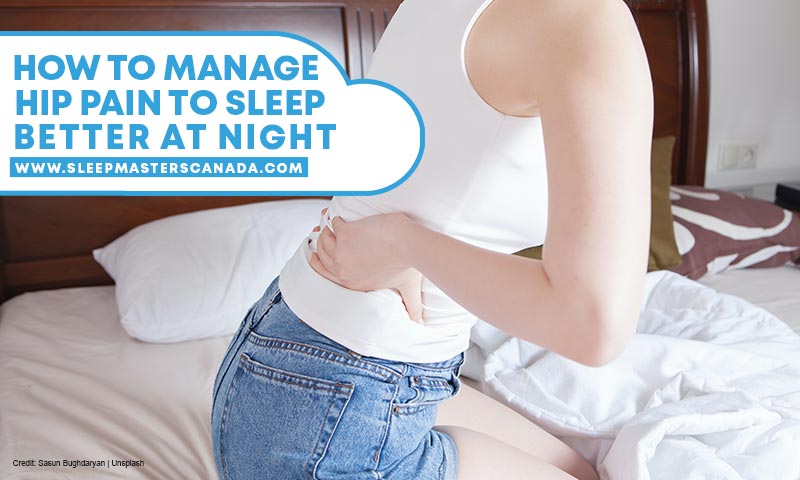
How to Manage Hip Pain to Sleep Better at Night
At Sleep Masters Canada, we understand the importance of a good night’s sleep and how hip pain can disrupt your rest. Whether it’s caused by injury, arthritis, or other conditions, hip pain can make it challenging to find a comfortable sleeping position. However, there are steps you can take to manage hip pain and improve your sleep quality. In this blog post, we’ll explore some effective strategies to help you alleviate hip pain and enjoy a restful night’s sleep.
Testing Different Sleeping Positions
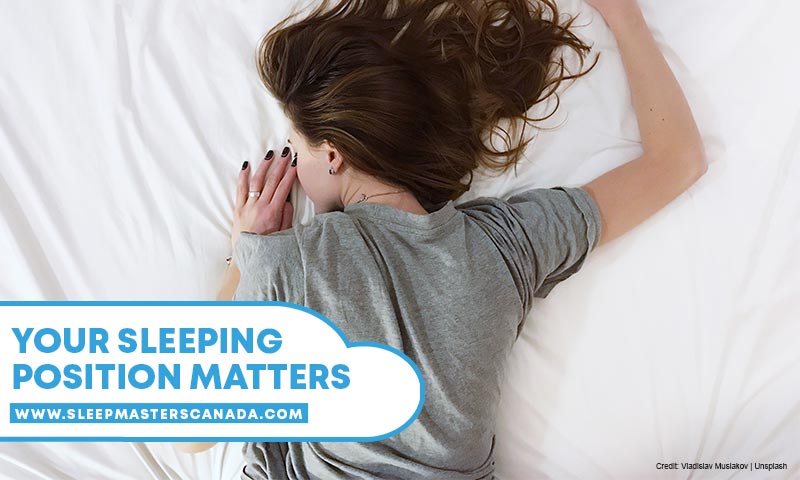
Experimenting with different sleeping positions can help alleviate hip pain and improve sleep quality. For many people, sleeping on their side with a pillow between their knees can help reduce pressure on the hips and align the spine properly. Alternatively, some individuals find relief by sleeping on their back with a pillow under their knees to support the lower back and hips. Finding the right sleeping position may take some trial and error, but it can make a significant difference in managing hip pain.
Incorporate Gentle Stretching Exercises
Incorporating gentle stretching exercises into your daily routine can help improve flexibility and reduce hip pain. Focus on stretches that target the muscles surrounding the hips, such as the hip flexors, glutes, and piriformis. Stretching before bedtime can help relax tense muscles and prepare your body for sleep. However, be sure to avoid intense or strenuous exercises close to bedtime, as they may have the opposite effect and make it harder to fall asleep.
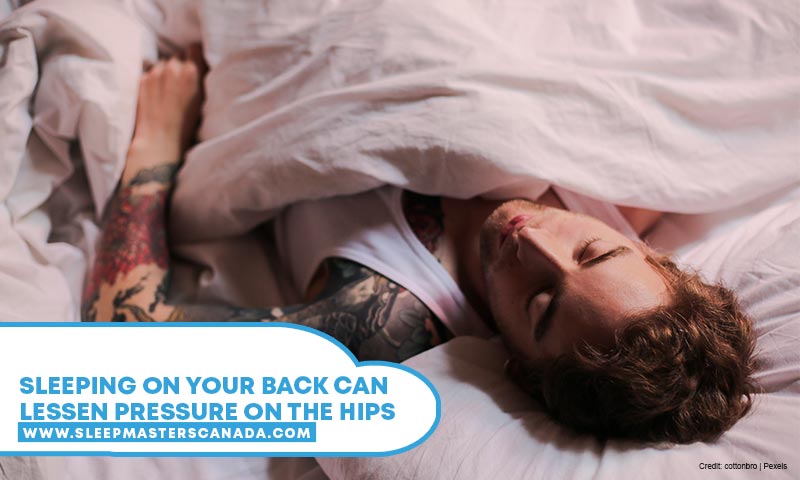
Use Supportive Pillows
Using the right pillows can also help alleviate hip pain. A contoured pillow designed to support the neck and shoulders can help maintain proper spinal alignment while sleeping on your side. Placing a pillow under your knees or between your legs can also help reduce strain on the hips and promote better sleep posture.
Invest in the Right Mattress
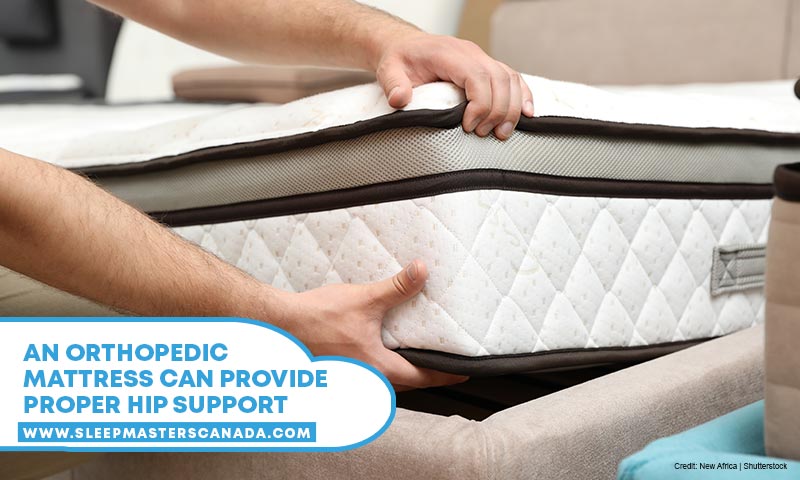
Choosing the right mattress is crucial for managing hip pain. Look for a mattress that provides adequate support and cushioning to relieve pressure on your hips. Memory foam and hybrid mattresses are often recommended for their ability to contour to your body’s shape and distribute weight evenly. At Sleep Masters Canada, we offer a diverse selection of high-quality mattresses designed to provide optimal support and comfort for sleepers with hip pain. If you prefer to shop in person, you are more than welcome to visit us at our Toronto Mattress Store where you will find a variety highly supportive and pressure relieving mattresses.
Consult with a Healthcare Professional
If you’re experiencing chronic or severe hip pain that interferes with your sleep, it’s essential to consult with a healthcare professional. They can help diagnose the underlying cause of your hip pain and recommend appropriate treatment options, such as physical therapy, medication, or surgery if necessary. Additionally, they may provide personalized advice on managing hip pain and improving sleep quality based on your individual needs and circumstances.
Conclusion
Managing hip pain is crucial for achieving a restful night’s sleep and maintaining overall health and well-being. By investing in a supportive mattress, trying different sleeping positions, using supportive pillows, incorporating gentle stretching exercises, and consulting with a healthcare professional, you can effectively alleviate hip pain and enjoy better sleep quality. At Sleep Masters Canada, we’re dedicated to helping you find the perfect mattress and sleep solutions to ensure you wake up feeling refreshed and rejuvenated every morning. We suggest getting in touch with us or making use of our Mattress Selector Tool if you are unsure about which type of mattress will work best for you. If you reside within the Greater Toronto Area, we would also love to welcome you at our Mattress Store in Toronto and help you further in person!

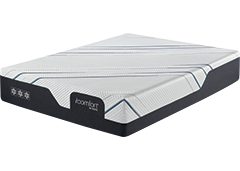 Serta
Serta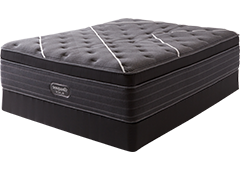 Simmons BeautyRest®
Simmons BeautyRest® Pocket Coil
Pocket Coil Memory Foam
Memory Foam Pillow-Top
Pillow-Top Dreamstar Mattresses
Dreamstar Mattresses Mattresses under $500
Mattresses under $500